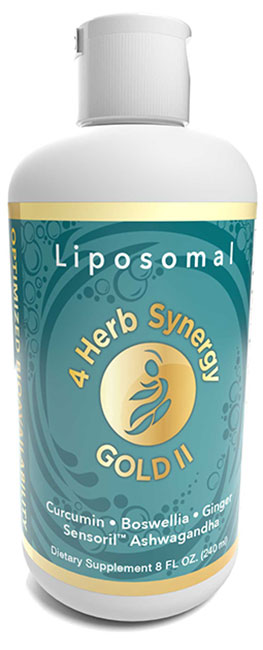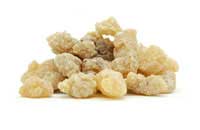It’s true that living a healthy lifestyle is an important component of longevity, but our bodies sometimes need a little help. Ancient healing traditions throughout the world have been using traditional herbs for thousands of years to promote health and longevity.
4 Herb Synergy Gold II using four herbs from the Ayurvedic and Chinese healing traditions, two of the most ancient and well-established healing traditions in the world. Here’s a look at how our formula can promote overall health and wellbeing as we age—the key is in the herbs we’ve chosen:
Curcumin – Targets Chronic Inflammation
Curcumin is derived from Turmeric, a classic spice found in curry blends and is responsible for the dish’s golden color. Curcumin, in fact, is responsible for much of the distinct yellow flavor. Where curcumin really shines is an anti-inflammatory agent with antioxidant properties. Since chronic inflammation and oxidative stress are major contributors to aging and age-related diseases, Curcumin is a great addition to our formula.
Studies have shown that curcumin can improve brain function, reduce the risk of neurodegenerative diseases, and enhance cardiovascular health. By supporting these critical systems, curcumin helps to maintain a youthful body and mind.
Boswellia – Promotes Joint Health
Boswellia is most often known by its other name – Frankincense – and this is one of those traditional herbs that has been used for thousands of years. Its primary anti-aging benefits stem from its ability to reduce inflammation and improve joint health. Boswellia inhibits the production of pro-inflammatory enzymes, thereby alleviating chronic inflammation, one of the main reasons why people age. We find that it complements the other herbs and spices in our formula and gives it a pleasant flavor.
In addition to taking Boswellia internally, the oils and extracts are often incorporated into cosmetics and creams because it has been shown to promote the production of collagen and reduce the look of wrinkles.
Ginger – Keeps the Body Healthy
We all know that ginger is a popular culinary spice, and we can often find the fresh root sold in the produce area of our local markets. It’s a great addition to many dishes, especially those that use Asian flavors. It also makes a lovely tea that has a pleasant, if not slightly sharp, flavor.
It’s also a great, versatile spice that can help keep the body healthy as we age. Rich in antioxidants, ginger helps protect the body from oxidative stress, a major factor in the aging process. It also supports healthy digestion and enhances nutrient absorption, ensuring that the body receives the vital nutrients needed for cell regeneration and repair. It has also been shown to improve circulation and support heart health, which is also important as we get older.
Ashwagandha – Known for Its Adaptogenic Properties
Stress is something that can really affect our health. Keep stress at bay, and our aging process will be much more manageable. This is where Ashwagandha shines. As an adaptogenic herb, it can help the body better adapt to stress, which also has anti-aging benefits.
Chronic stress accelerates aging by increasing the production of cortisol, a hormone that, in high levels, can lead to a host of health problems including impaired cognitive function, weakened immune response, and reduced skin elasticity. Ashwagandha mitigates these effects by balancing cortisol levels and enhancing the body’s resilience to stress.
While each of these herbs individually offers remarkable anti-aging benefits, their combination in the 4 Herb Synergy Gold II formula creates a powerful synergy that enhances their effects. This blend addresses multiple aspects of aging, from inflammation and oxidative stress to stress management and cellular health. By targeting these various pathways, 4 Herb Synergy Gold II provides a comprehensive approach to anti-aging, promoting not just a longer life, but a healthier and more vibrant one.
Sources:
https://www.ncbi.nlm.nih.gov/pmc/articles/PMC8398038/
https://www.webmd.com/vitamins/ai/ingredientmono-63/boswellia-serrata
https://www.ncbi.nlm.nih.gov/pmc/articles/PMC9110206/
https://www.ncbi.nlm.nih.gov/pmc/articles/PMC7096075/




